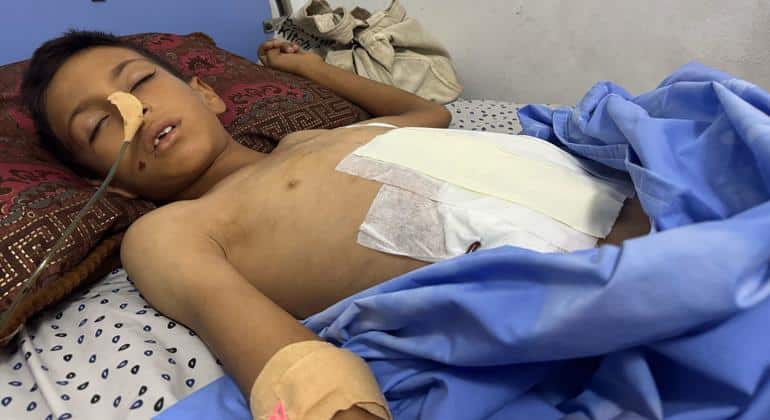Sure! Here’s the translated text:
—
Hospitals in the Gaza Strip are on the brink of collapse due to an alarming rise in violence that has left a high number of casualties. The UN Office for the Coordination of Humanitarian Affairs has reported that the daily average of incidents reaches eight, exceeding the capacity of the few medical centers still operating in the region.
The situation is worsening with a notable increase in cases of Guillain-Barré syndrome, an autoimmune neurological disease that, while not contagious, causes muscle weakness and can lead to paralysis. To date, three deaths and approximately 64 confirmed cases have been reported, including two deceased children. This condition was previously rare in the area, with only a few annual cases before the conflict began in October 2023.
The shortage of medical supplies further complicates the situation. According to the World Health Organization, around 30% of Guillain-Barré patients require intensive care, but the lack of intravenous immunoglobulin, essential for their treatment, has exacerbated the problem. Additionally, the destruction of the WHO’s main medical warehouse in an attack in Deir Al-Balah has intensified the pressure on an already weakened healthcare system.
Meanwhile, the number of meningitis cases has also been rising, making the shortage of antibiotics a significant obstacle. Infections are at the highest levels recorded since the onset of the crisis, leading to the hospitalization of patients under isolation measures, reinforcing the urgency for medical attention.
In terms of food security, the situation is critical. The World Food Programme has emphasized the urgent need to allow humanitarian aid into the region, stating that famine cannot be eradicated through airstrikes. Currently, approximately 500,000 people are on the brink of starvation in Gaza, with around 200 deaths already linked to malnutrition.
A FAO report has revealed that only 8.6% of arable land in the Gaza Strip is accessible, and less than 2% remains intact, exacerbating the severe food crisis affecting more than two million people in the territory. This devastation has left many without the basic resources needed to survive.
In light of this dramatic reality, human rights experts have called on the international community to restore the UN humanitarian system and take action to prevent the destruction of living conditions in Gaza. They denounce the use of famine as a weapon of war and emphasize that the restrictions imposed by Israel constitute a punishable act under international law.
Thus, the international community faces a moral imperative to act urgently to protect the Palestinians in Gaza and respond to the atrocities this population has endured. Without robust collective measures, sustaining life in the region could become an insurmountable challenge.
Referrer: MiMub in Spanish
